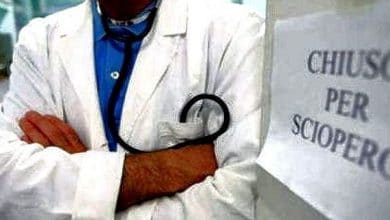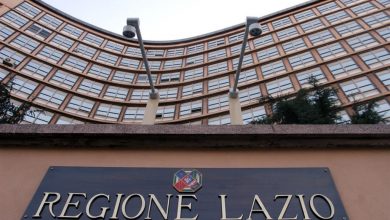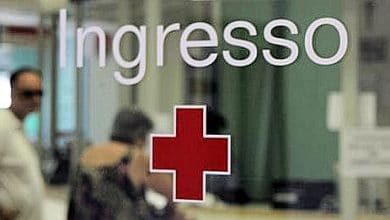
Anaao: “profiles of illegitimacy”. The dismantling of the medical profession continues: first prescriptive power is granted to pharmacists and ASL, now the pressure of the 22 non-medical professions would have resulted in paragraph 566, which gives more skills to nurses in six specialist areas: territory, emergency, medicine, surgery , pediatrics and mental health/addictions.
Saturday, January 10, 2015 – Doctor33
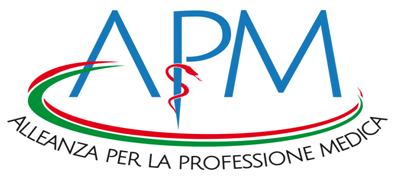 «We do not fear the loss of doctor's skills to the benefit of other health professionals: nurses follow a legitimate path of empowerment. It is annoying, however, that reasons for "coups in hand", forgetting the past, and that now the government claims to resolve in three lines to the paragraph 566* [look down] from the Financial the question of the global review of the roles and responsibilities of the professions in the National Health Service, when it had to be regulated by an ad hoc table, according to article 22 of the health pact».
«We do not fear the loss of doctor's skills to the benefit of other health professionals: nurses follow a legitimate path of empowerment. It is annoying, however, that reasons for "coups in hand", forgetting the past, and that now the government claims to resolve in three lines to the paragraph 566* [look down] from the Financial the question of the global review of the roles and responsibilities of the professions in the National Health Service, when it had to be regulated by an ad hoc table, according to article 22 of the health pact».
On behalf Alliance for the Medical Profession, acronym that brings together the Cimo hospitals, the Fimmg family doctors, the Sumai specialists and the dentists Andi, the president Cimo Riccardo Cassi clarifies the statement of "condemnation" of the method - rather than the merits - with which the legislator operates in terms of "review" of the rules of engagement between NHS operators.
The table pursuant to article 22 on access to the professions envisaged by last year's state-region pact seems to have stalled due to the tug-of-war between regions and universities on training. Meanwhile, however, the pressure of 22 non-medical professions it would have resulted in paragraph 566, which offers formal form to a previous state-regions agreement which confers more skills on nurses in six specialist areas: territory, emergency, medicine, surgery, pediatrics and mental health/addictions.
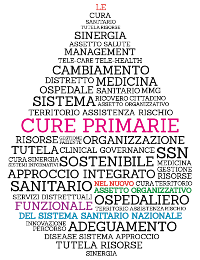 The leader of the Ipasvi nursing colleges Annalisa Silvestro he clarified in some interventions the epochal scope of the law; in the Anaao hospital union it was instead remarked that the danger of delegitimizing the role and responsibilities of the doctor is seen more in the territory and in the paths of diagnosis and treatment of chronic diseases, where the tasks are not yet defined, than in the hospital.
The leader of the Ipasvi nursing colleges Annalisa Silvestro he clarified in some interventions the epochal scope of the law; in the Anaao hospital union it was instead remarked that the danger of delegitimizing the role and responsibilities of the doctor is seen more in the territory and in the paths of diagnosis and treatment of chronic diseases, where the tasks are not yet defined, than in the hospital.
The stability law now provides that the state and regions, having heard the professional representations, sign an agreement to review roles, functions, rules of engagement and responsibilities among the health professions and endorse complementary training courses in the meantime carried out in the various regional realities.
«A control room should have been dealing with these issues for months in which we had made a proposal like Cimo - says Cassi - then the chance of the table pursuant to article 22 arrived, now all this is being replaced by the hypothesis of an agreement state regions. First, they will have to hear the representatives of the various professions but it is not clear who they will hear or if they will hear us doctors ». Among other things, in the introduction, paragraph 566 maintains the competences of the professional surgeon "in the field of complex and specialized acts of prevention, diagnosis, treatment and therapy".
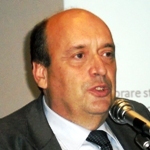 “What is meant by complex acts? Does it mean that others perform the simple acts and we supervise or that every medical act is the sum of decision-making and relational processes that are formed between various figures?»
“What is meant by complex acts? Does it mean that others perform the simple acts and we supervise or that every medical act is the sum of decision-making and relational processes that are formed between various figures?»
According to Apm, an inter-professional clarification is needed «to which article 22 of the health pact opened up and which the new formulation no longer guarantees. In particular, the leadership of the doctor must be clarified, who has 6 years of degree and 5 years of specialization behind him, in key areas, where the responsibility today is always attributed by the judge to the doctor ».
Mauro Miserendino
*566. Without prejudice to the skills of graduates in medicine and surgery in the field of complex and specialized acts of prevention, diagnosis, treatment and therapy, with an agreement between the Government and the regions, after consultation with the scientific, professional and trade union representatives of the health profiles concerned, are defined the roles, skills, professional relationships and individual and team responsibilities on tasks, functions and objectives of the nursing, midwifery, rehabilitation and prevention techniques health professions, also through complementary training courses. The implementation of this paragraph must not result in new or greater burdens on the public finances.
Related news: What does "paragraph 566" of the Stability law provide for?
IPASVI. January 2015: the "specialist" nurses arrive
Specialist nurses in the stability law? But where? I haven't found them
Doctors vs nurses, in Lazio it is a clash for day surgery management
Exclusive. Annalisa Silvestro (Ipasvi): "Specialist skills, instructions for use"
Nursing skills, Anaao does not exclude illegitimacy profiles in the procedure pursuant to paragraph 566
"We will evaluate the results of the new Stability Law which brings into play the professional and organizational skills of doctors, which we consider intangible, and if the activities due by law to the doctor are entrusted to other professions, we will put in place legal procedures to defend colleagues". To Carlo Palermo, deputy vicar Anaao Assomed, paragraph 566 of the new Budget law does not go down well, as to all the leading hospital union. «Reading it, it seems that we doctors are only responsible for complex and specialized acts, and for nurses and other healthcare professionals "simple and generic" acts. But no law has provided for the complex/simple distinction. Existing laws and judicial decisions are clear regarding the exclusive responsibility of the doctor in the diagnostic process and in the therapeutic prescription. Even the law 42/99 has not affected the competences of the doctor, while it is a ministerial decree, the 739/94, which identifies the provisions for the nursing profession. The validity of these references is also recognized by the Nursind nurses union. Legislative Decree 502/92 has also reserved management and organization functions to the doctor in the areas of diagnosis, treatment, prevention and rehabilitation. The new text instead entrusts innovations that can impact existing laws to a third chamber, the state-regions conference". Anaao had repeatedly warned that these matters should be framed with laws and regulations of national value if legal clarity is desired and a balkanization of the right to health is not desired. Furthermore, Palermo recalls that «the reference laws for nursing skills provide for the acquisition of the opinion of the Medical Association as mandatory. These steps cannot be skipped."
Paragraph 566 for Anaao goes beyond the simple attribution of new skills to nurses. «If it were a simple rewrite of decree 739, nothing to say, indeed! Many regional trials of nurse empowerment need to be disseminated nationally as they improve care. But these are things we all talk about together». In paragraph 566 Palermo instead of dialogue sees the blitz. «A year ago in the control room document (set up to recover dialogue after the medical unions had rejected the document on nursing skills, ed) it was reiterated that diagnostic and therapeutic responsibilities are in the hands of doctors also to favor the evolution professional at an organizational and regulatory level. Then in the summer there was talk of professions and a table to be set up ex novo according to article 22 of the State-Regions Pact for Health. Now comes the Stability Law which shifts the focus on the medical act trying to distort the existing legislative and judicial body. We see no reason to touch the current legal framework which entrusts the doctor with precise responsibilities in professional acts and a role of multi-professional organizational reference deriving from the fact that we have 6 years of degree and 5 years of specialty behind us. Another thing is to support the specialist skills that nurses have legitimately developed in recent years and which, in addition to being recognized, should be valued in economic terms. The latter is a prospect which also frightens the drafters of paragraph 566 when they recall the need not to create other burdens on the state».
Mauro Miserendino – 12 January 2015 – Doctor33
Stability, Confederation of district associations: "yes to the evolution of health professions"
Tuesday 13 January 2015
Of Editorial board
AboutPharma and Medical Devices
Card promotes paragraph 566 and welcomes the provision of a path that will see the progressive evolution of nurses and technicians


